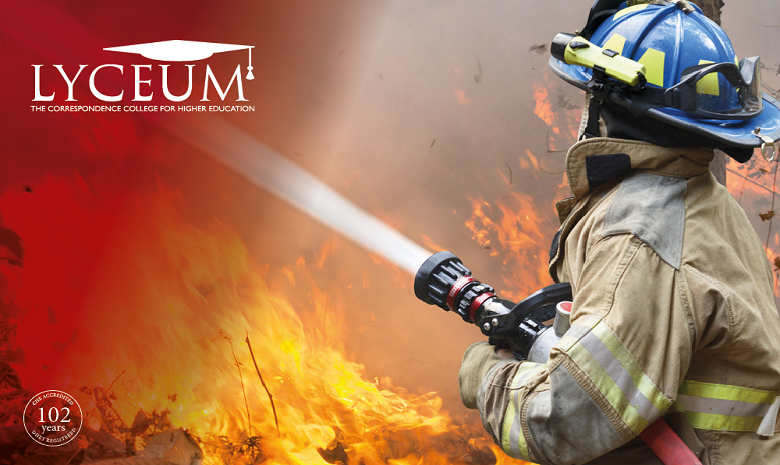
At any given time, disasters can occur and cause disruption in communities or organisations. For example, burst pipes can create chaos and interrupt people’s access to water and other resources. Measures to deal with disasters need to be in place to reduce damage in emergency situations.
The rise of disasters in South Africa has increased the need for risk avoidance strategies and there is a high demand for professionals in this field. There is an urgent need to overcome natural disasters and promote danger alleviation. According to the National Disaster Management Centre, the hazards include bad weather conditions, drought, cyclones and severe storms that have the potential to cause devastation. The country’s coastline and proximity to shipping routes also pose a threat to humanity and resources. People that live in impoverished areas are more vulnerable to threats that range from water shortages, floods and other damaging weather conditions.
With this comes the demand for risk management professionals who are placed within relevant environments to manage risk. The government’s department and various disaster management agencies are always looking for professionals with skills to work in this field. Graduates in this field can pursue careers in the disaster management sector nationally or abroad.
What is the role of disaster management professionals in times of disaster?
A career in disaster management is for a person who can provide assistance to people when faced with calamities. This is for someone with the ability to bring calm in situations of panic and to help restore peace. They must be able to predict the outcomes of situations and be proactive in protecting people at all costs.
This is why there are operation risk officers who prepare for tragedies and have plans of action to effectively bring about solutions. This is also how professionals in sectors such as climate and humanitarian organisations can predict disasters and play a role in reducing the impact. They have a plan of action in place to respond immediately to disasters and reduce the damage and impact.
Trending national disaster stories
The Western Cape has officially been declared as a disaster area due to the drought issue that they are facing. This is costing the country millions of rands which impacts on the economy. Western Cape premier, Helen Zille, reported to the news that government has also placed a R295m emergency plan programme towards the issue.
Helen Zille, who spoke at the water summit in Worcester earlier this year, said this is the worst drought to have hit the country in over a decade. The National Disaster Management Centre has also injected R20.8 million in the City of Cape Town to alleviate the disaster. The drought has resulted in reduced agricultural activity and lessened the demand for workers in this sector. For the programmes placed by the government to be effective, there is a significant need for professionals to implement these relief plans.
How does a qualification enhance my opportunities in this industry?
Training in this industry is advantageous in that it affords you better career offers in the industry. The qualification you gain also allows you to have diverse opportunities and a chance to work with any agency. In the workplace, you can be part of the team that comes up with the strategies and plans for disaster relief, provide relief services and plans for companies or you could manage teams that are at the scene of disasters.
A Bachelor of Arts in Disaster and Safety Management affords you a great salary for the skills and expertise that you bring to an organisation.
How much will you earn?
According to PayScale, a risk manager earns an average salary of R498 757 per year. If you’re a chief risk officer the average salary can be as high as R1 004 021 per year.
What opportunities can disaster and safety management graduates access?
Disaster Management Specialist/Practitioner
Local Government Disaster Management
Construction and Mine Safety
NGOs (Non-Governmental Organisations)
Insurance and Risk industry
Occupational Health and Safety Officer
Law Enforcement
Agriculture
Manufacturing
Humanitarian and Climate organisations
What does the Disaster and Safety Management degree cover?
A Bachelor of Arts in Disaster and Safety Management covers content such as fundamental disaster management, fundamental information and communication and disaster risk reduction and development. This will equip you with top skills that are desperately needed in this industry and allow you to gain access to influential positions.
The programme will also equip you with primary skills in areas such as disaster prevention, environmental planning, disaster relief and recovery. You will learn the guidelines and principles of providing safety to vulnerable communities in times of crisis.
Lyceum alumni testimonial
“Once the fire is out, we arrive at the disaster site and the rehabilitation of the site is a mammoth task. But, this is where my degree helps. It’s also shown me how to interpret the Disaster Management Act 57 of 2002.”
— Jemma Wheatley, Lyceum graduate, currently employed as a Disaster Management Official
A career in disaster management offers diverse opportunities for those passionate about the field. You can help save lives and prevent disasters today.
Contact Lyceum to start your legacy:
Tel: +27 86 010 0705
Email: info.lyceum@icg.edu.za
Website:https://www.lyceum.co.za/?utm_source=spacestation&utm_medium=article&utm_campaign=disasterman&utm_term=disasterman